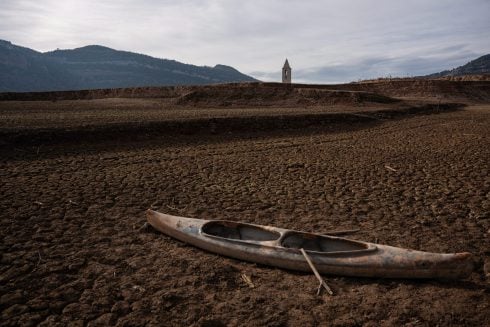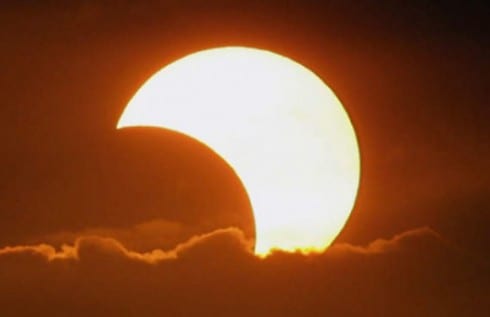MANY of us consider ourselves eco-friendly, recycling plastic bottles, buying organic food and keeping the heating down to 20 and the air con at below 25 degrees.
But there are a lot of myths and hidden truths about climate change and plenty that needs explaining. Here are a few home truths for you to mull over.
Which is worse for the environment: Central heating or air conditioning?
A few summers ago, the Japanese government agreed to work without collars and ties in an effort to use less air conditioning. But, interestingly they did nothing about the heating in winter, confident that cold air used more energy than hot air.
How wrong could they be. For hot air, in fact, usually emits more C02 than cold air.
Producing one kw/hr of cold air emits between 150 and 325 grams of CO2, in comparison to between 201 and 650 grams for hot air. And in terms of keeping your carbon footprint down, steer clear of electric radiators, which emit between 450 and 650 grams of CO2 per kw/h, with natural gas boilers emitting around 201 and oil boilers emitting 264.
Which is worse for the environment, a plastic bottle or a glass one?
It is generally believed that glass is less damaging but this is not always the case. Glass is produced from sand extracted from quarries. Javi Puig, of Ecovidrio, explains: “Glass is a mineral and does not change its chemical composition, or alter its content in the environment.” The consequence of this is that although the same glass bottle can be used repeatedly without causing any environmental damage, once you throw it away things change and it takes centuries to biodegrade.
It also worth noting that clear glass contaminates the environment and only coloured, green and topaz bottles can be produced from recycled glass. And furthermore the energy needed to recover the glass from one bottle requires three times as much energy than a plastic bottle.
Alberto Caldeiro, technical director of Cicloplas, a plastic-recycling company, said that plastic melts at 250 degrees centigrade and is then ready to be made into a new bottle. Glass melts at a temperature three times as high.
China is more than doing its bit
China has been heavily criticised for its power stations and rapid development, but it is actually doing a lot to work towards sustainability. Indeed, last year China tripled its production of solar energy, generating 35 per cent of the world’s overall total and converting it into the sector’s primary producer.
On top of that it installed more wind turbines in 2007 than every country apart from Spain and America. By next year it is estimated that China will have the capacity to produce 19.500 MW/hr a year, the same amount of energy that is generated by all the wind turbines installed globally in 2007, according to Gamesa, a company that sells wind turbines in Asia.
And finally, China has developed a national plan that 15 per cent of its energy will come from renewable sources by 2020.
Organic food is not always environmentally–friendly
The organic sections of supermarkets promise that eating healthily is eating organically. But it’s not that simple. Organic means that it has not been treated with chemicals, fed with toxic fertilisers or protected with synthetic fertilisers.
It guarantees that dairy produce does not contain preservatives, that animals eat natural grass and that seeds are not genetically modified. The product is clean in its production. But this does not necessarily ring true in getting it to the consumer.
Look closely at most supermarkets and the organic section is like a microcosm for the rest of the world. At one I recently visited in Madrid, the apples came from Northern Italy, the yogurt from France, the onions in their plastic tray and cling film (hardly very good for the environment) from Egypt, and the carrots are from Holland.
These products have travelled collectively 8400kms before they get to your mouth. Transport signifies an unecessary use of oil, possible contamination and a higher price. The main solution is to buy from the producers who live nearest to you.









Good article, and useful to see the other side of the coin. However, the article does not go far enough. People need to be aware that Climate Change is a theory, and only a theory. All of the scientists projections are just that, projections and extrapolations, not actualy reality. People would be wise to investigate both sides of the argument before coming to a conclusion. Man is affecting the planet, but is he responsible for Climate Change? That is simply not proven, and it is getting boring keep on seeing every natural disaster attributed to Climate Change. The planet has been both warmer and colder than it has been during man’s time on the planet (which coincidentally, is like 2 seconds of time in the Earth’s total existence.) Sure, the ice caps are melting, perhaps they did that before man was on the planet? You don’t need a PhD to realise this.
Well Fred, for once I agree with you. I think the only thing we can do is to try and live a little more in tune with nature and give consideration to the needs of wildlife flora and fauna and lessen the impact of consumerism and the throw-away society. I think only then can we live in harmony with the Earth of which we are a part.
It may not save the world, if indeed the world really IS in trouble but it would make living here a more pleasurable experience as a human being.
So, what are we all going to do? Stop driving cars and walk everywere? Have fewer kids? What exactly does “live a little more in tune with nature and give consideration to the needs of wildlife flora and fauna and lessen the impact of consumerism and the throw-away society” mean? It sounds good, but are we just paying lip-service or are we doing something?
By the way I, too, am not convinced that we have to do anything or, if we do, that it’s not too late already.
The world of our childrens’ children will be a vastly different place. I think it will be a world of less travel -less air travel for sure, indeed the UK just said yesterday that ‘train must replace plane’.
As the oil runs out (in say 50 years) there will be more wars, more confrontations, and more drilling in nature reserves that will further ruin what is left of the planet’s untouched lands – this is happening now already of course.
Petrol cars will give way to hybrid vehicles. Cars will become luxury items and travel itself will be a luxury.
There will of course be a lot more nuclear power stations and all the hell they bring with them. There will also be more natural disasters because of the world’s changing climate patterns. I can also see more draconian laws about having offspring. All of this is obvious – it has to happen because the world’s resources are finite and man has evolved to become lazy and greedy and doesn’t care about his planet. That goes for all of us – we do care but we don’t act en masse. Change will only come through a massive catastrophe, when we are forced to change.
Back to the burros we go…
Dear Fred. You OBVIOUSLY don’t have a PhD. And you don’t NEED a PhD to notice that something is happening on this planet that has never before happened in such frequency, not in our lifetime anyway. Unless you’re prepared to do a PhD yourself to prove all those who tell you otherwise wrong on their assumptions that the world is heating up I’d suggest you stop spouting such uninformed sh**! (the international panel on Climate Change consists of a long line-up of scientists who do have PhDs and know that global warming is a reality!)
http://www.climatechangefacts.info/
no need to get so angry with anyone eh? you are just heating up the climate… have a read.
X
un beso
The only hot air is in Anita’s reply. Having any quantity of PhD’s cannot prove or disprove climate change. The statistics for climate change are dubious, and as we all know from recent revalations, the data is not holding up under scrutiny.
Something is happening on the planet, but there’s just no way to definitively prove man is causing it. No scientist can say what has been happening over billions of years; our time on the planet is just too short. No amount of websites with the word “climate” and “fact” in them, PhDs, uppercase words saying OBVIOUSLY, or nobel prizes etc, can overcome that fact.
Man is definitely polluting and pillaging the planet, but warming it up and causing climate change is light years away from definitive proof. As I said before, if you read post #1, the planet has been both hotter and colder when man was not even on the planet. Perhaps our planet is going through changes that are regular but which we have not yet encountered?